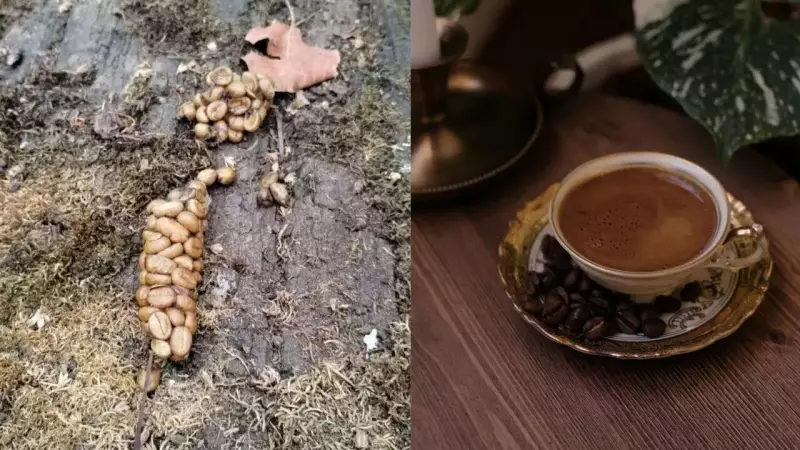
In a revelation that's stirring the global coffee community, scientists have confirmed what many luxury coffee enthusiasts suspected but few wanted to dwell on: the world's most expensive coffee literally comes from animal droppings.
The Unusual Journey of Kopi Luwak
Kopi Luwak, often called civet coffee, undergoes one of the most unusual production processes in the food industry. The coffee beans are consumed by Asian palm civets, small mammals native to Southeast Asia. These creatures selectively eat only the ripest coffee cherries, and through their digestive system, something remarkable happens.
The scientific explanation reveals that enzymes in the civet's stomach ferment the beans while they pass through the digestive tract. This natural processing method removes some of the bitterness typically associated with coffee while enhancing its complex flavor profile.
Why the Hefty Price Tag?
Several factors contribute to Kopi Luwak's astronomical price, which can reach up to $100 per cup in some establishments:
- Rarity: The production process is entirely dependent on wild civets and their natural feeding patterns
- Labor-intensive collection: Workers must search through forests to find the droppings containing the precious beans
- Thorough cleaning: The beans undergo extensive washing and roasting to ensure safety
- Unique flavor profile: Coffee connoisseurs describe it as smoother, less acidic, with chocolate and caramel notes
Ethical Concerns and Scientific Validation
Recent scientific studies have confirmed that the digestive enzymes genuinely alter the coffee beans' chemical composition. However, researchers also highlight growing ethical concerns within the industry.
"While the science behind the flavor transformation is fascinating," notes one food scientist, "we must address the welfare issues surrounding caged civets in some commercial operations."
The most authentic and ethical Kopi Luwak still comes from wild civets in their natural habitat, where they freely choose which coffee cherries to consume.
What Coffee Lovers Should Know
Before splurging on this exotic brew, consider these points:
- Always verify the source to ensure ethical production practices
- Authentic Kopi Luwak should have certification of wild origin
- The flavor is noticeably different from regular coffee—less bitter with earthy undertones
- Proper preparation is crucial to appreciate its unique characteristics
While the concept might initially seem unappetizing, the science confirms that this natural fermentation process creates one of the world's most sought-after coffee experiences. The next time you see Kopi Luwak on a menu, you'll understand exactly what makes this brew both controversial and captivating.





